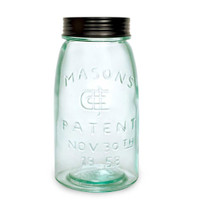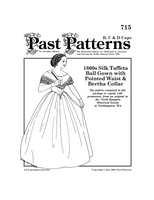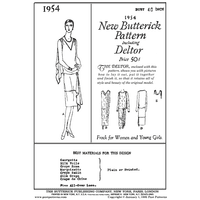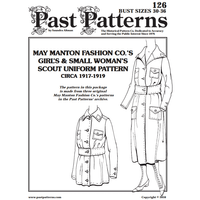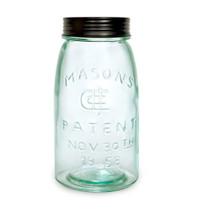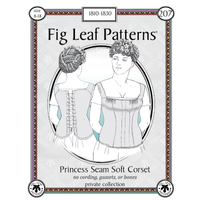 Loading... Please wait...
Loading... Please wait...Categories
Add to Wish List
New Products
- Home
- Historic Patterns
- Women's
- Regency (1790-1820)
- Princess Seam Soft Corset c. 1810 - 1830
Product Description
This soft corset is an important link in development from the 18th Century’s style of fully boned stays to the early 19th Century’s long corset with cording, gussets, and removable busk. This corset represents the relaxed attitude towards fit and a more “natural” figure that started in the early 1790s. With princess seams curved for moderate period uplift, this corset creates structure through fit rather than through cording or boning. A busk curved to the individual’s figure serves as both posture reminder and a wrinkle remover.
This corset is not designed for tight lacing even though it has double-flanged metal eyelets. More research into the dating of this type of eyelet is on going but they seem to appear in the mid 1810s along with the grooved bone eyelets.
This style of gusset-less corset lingers until the early 1830s when the new lowered waist-line emphasis requires a different type of body shaping created through gores, gussets, and cording.
FIT:
This soft corset would have been worn over a shift and with a busk that had been curved to the shape of the wearer. It is comfortable to wear and move in with and without the busk. There are additional notes on how to adapt the pattern for the larger busted woman.
FABRIC:
The original fabric was a linen in a satin weave which provides both flexibilty and strength. There is no additional lining or interlining.
CORDING:
The only cording is placed in the fold at center back.
CHOOSING SIZE:
When deciding which size is correct for you to use, measure your rib cage under your bust and your waist, preferably with your underpinnings on. Instructions include various ways to alter the pattern to fit your individual measurements.

